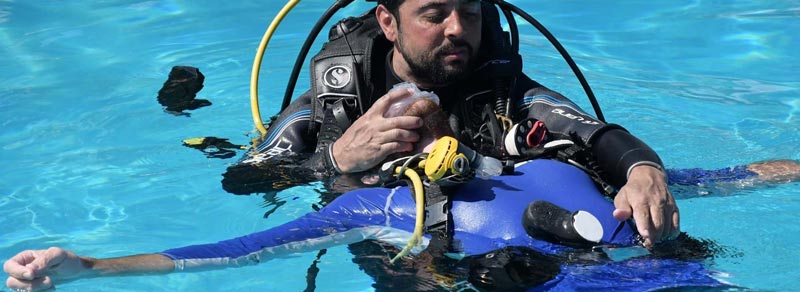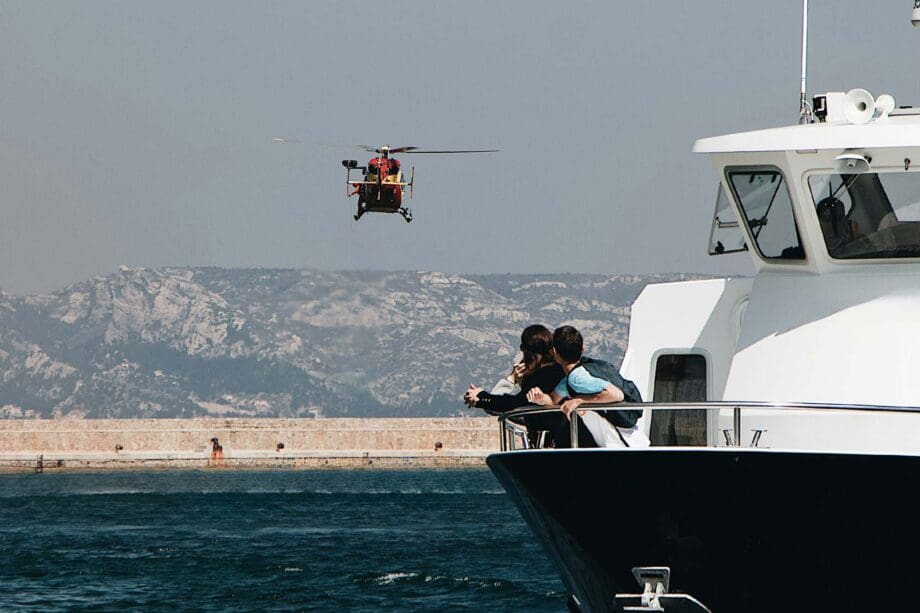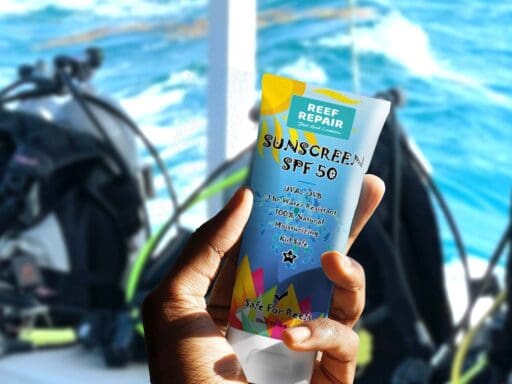Diving, with its mesmerizing underwater landscapes and vibrant marine life, is a thrilling adventure for many. However, with adventure comes risk, and prudent divers understand the importance of being prepared for the unexpected.
This is where dive insurance enters the picture – a safety net designed to cushion the financial blows of unforeseen emergencies. But is dive insurance truly worth the money?
In this short guide, we’ll delve into the intricacies of dive insurance. We’ll explore its benefits, drawbacks, and relevance for both recreational and professional divers alike.
Understanding Dive Insurance
Before we delve deeper into the debate, let’s clarify what dive insurance entails. Dive insurance is a specialized form of coverage tailored to the unique risks associated with diving activities.
Although there’s many different bolt-on packages and coverage types, dive insurance typically comes in two primary forms. There’s dive/travel insurance for recreational divers and professional liability insurance for diving professionals such as instructors and divemasters.
1. Dive/Travel Insurance for Recreational Divers
This type of insurance is designed for individuals who engage in recreational diving activities. It typically provides coverage for various aspects related to diving, such as medical expenses resulting from dive-related injuries, emergency evacuation, trip cancellation or interruption, lost or damaged equipment, and sometimes even non-diving-related incidents that may occur during travel.
2. Professional Liability Insurance for Diving Professionals
Diving professionals, including instructors and divemasters, require specialized insurance coverage due to the nature of their work. Professional liability insurance is tailored to protect them from potential lawsuits or claims arising from their professional activities. This coverage typically includes protection against legal expenses, damages, and other liabilities resulting from incidents such as accidents during training sessions, equipment malfunctions, or negligence claims.
While both types of insurance cater to the diving community, they serve different purposes and address specific needs based on the diver’s level of involvement and professional status within the diving industry.
Arguments for Dive Insurance
One of the most compelling reasons to invest in dive insurance is the protection it offers against unforeseen emergencies. Picture yourself descending into the depths, surrounded by a panorama of coral reefs and exotic marine species.
Suddenly, disaster strikes. Perhaps you experience a sudden equipment malfunction. A rapid ascent leading to decompression sickness. Maybe a coral scrape resulting in a serious wound. In such harrowing situations, having dive insurance can mean the difference between swift, effective assistance and a potentially catastrophic outcome.
Moreover, dive insurance provides peace of mind during dive trips. It can offer reassurance that financial assistance is readily available in times of crisis. This is particularly pertinent for international dive expeditions, where access to quality medical care may be limited. In such situations costs can escalate rapidly.
When properly insured, divers can rest assured knowing that they should have access to comprehensive emergency assistance services, including medical evacuation if necessary.
For professional divers such as instructors and divemasters, the benefits of insurance extend beyond personal protection to safeguarding their livelihood.
Professional liability insurance shields diving professionals from the financial fallout of liability claims arising from accidents or injuries sustained during training sessions or guided dives.
Additionally, extra specialist coverage may extend to protect valuable professional equipment, ensuring that instructors can continue to ply their trade without fear of crippling financial losses.

Negative Aspects and Considerations
While the merits of dive insurance are undeniable, it’s still important to approach the decision with a critical eye. For one – do they really step up to the plate in emergency cases?
Just recently – and actually the catalyst for this article – we heard of an incident where a technical diver came up from a dive feeling unwell. As the minutes progressed and the diver’s condition worsened, it became clear that she was suffering from decompression sickness.
As the diver was fully insured against such events, the insurance company was contacted immediately and an emergency evacuation was requested. In no time at all, the insurance company called the boat back, to say there was no possibility of an evacuation. Allegedly, no planes were nearby or available.
A few calls later, however, a senior member of the crew found an available plane and the possibility to evacuate the diver, at short notice, to the next nearest hyperbaric treatment chamber.
The story however does not end there. It continues with hours of constant telephone calls and ‘haggling’ between the boat crew and agents of the insurers. The crew desperately trying to get the diver the care she needed. The crew kept finding solutions, for which the insurance company continually found problems.
In the end, the woman’s condition improved enough to move her – but everything was organised by the staff on the vessel – the insurance company offering no assistance in the slightest. In this case, the question of whether dive insurance is worth the cost is doubtful. Especially for the diver involved.
Are the costs worth the benefits?
Another primary consideration is the cost versus benefit analysis. Dive insurance premiums can vary significantly depending on factors such as coverage limits, deductibles, and the diver’s risk profile.
Before committing to a policy, divers should carefully assess whether the potential benefits justify the expense, taking into account factors such as their diving frequency, destination preferences, and propensity for risk-taking.
Are you really covered for everything?
One more crucial factor to consider is the scope of coverage provided by dive insurance policies. While most policies offer comprehensive protection against common diving emergencies, they may also come with limitations and exclusions that could leave divers vulnerable in certain scenarios. (as in the case above)
Another example: pre-existing medical conditions may be excluded from coverage, or there may be restrictions on activities deemed high-risk, such as cave diving or technical diving.
Furthermore, divers should be mindful of potential overlaps in coverage between dive insurance and other existing insurance policies, such as existing health insurance or travel insurance policies.
It’s essential to review the terms and conditions of each policy carefully to avoid paying for redundant coverage or encountering unexpected gaps in protection. Additionally, some divers may find themselves paying for coverage that they rarely, if ever, use, especially if they’re paying yearly premiums.
Divers who engage in infrequent or low-risk diving activities, for example, may question whether the benefits of insurance outweigh the costs, especially if they have alternative means of covering emergency expenses.
The decision to purchase dive insurance ultimately hinges on individual circumstances, including diving habits, risk tolerance, and financial considerations.
Real-Life Examples
To illustrate the tangible benefits of dive insurance, let’s consider a few real-life examples. In one instance, a recreational diver exploring a remote dive site experiences a sudden onset of decompression sickness.
For arguments sake, let’s assume they’re not insured with the same company as the tech diving lady mentioned in the story above above. Thanks to their dive insurance coverage, they receive prompt medical attention and evacuation to a hyperbaric chamber.
Ultimately they make a full recovery without incurring exorbitant out-of-pocket expenses.
Conversely, we also encounter cautionary tales of divers who found themselves in dire straits due to a lack of insurance. Imagine a scenario where an instructor faces a lawsuit from a student alleging negligence during a training exercise.
Without professional liability insurance to shield them from legal costs and damages, the instructor’s financial future hangs in the balance, highlighting the importance of adequate insurance coverage for diving professionals.
Tips for Selecting Dive Insurance
Armed with the knowledge that we now have, how can divers make an informed decision when selecting a policy? Here are a few tips to consider:
- Research reputable dive insurance providers: Look for insurers with a solid track record of reliability and customer satisfaction, and don’t hesitate to seek recommendations from fellow divers. We recommend Dive Assure, by the way.
- Customize coverage to individual needs: Tailor your insurance plan based on factors such as diving frequency, destinations, and personal risk factors, ensuring that you’re adequately protected without paying for unnecessary coverage.
- Review policy details thoroughly: Take the time to read and understand the fine print of your insurance policy, including coverage limits, deductibles, exclusions, and claims procedures, to avoid unpleasant surprises down the line.
So is dive insurance worth the money?
As we can see, the question ‘is dive insurance is worth the money’, can’t be answered with a simple yes or no. Rather, it must be a carefully considered decision that hinges on various factors, including individual preferences, risk tolerance, and diving habits.
While dive insurance offers some protection against the unforeseen perils of underwater exploration, it’s essential for divers to approach the decision thoughtfully. Weighing the benefits and drawbacks against their own unique circumstances is vital.
Ultimately, the peace of mind afforded by insurance may prove to be its most priceless asset, ensuring that divers can pursue their passion for exploration with confidence and security.




